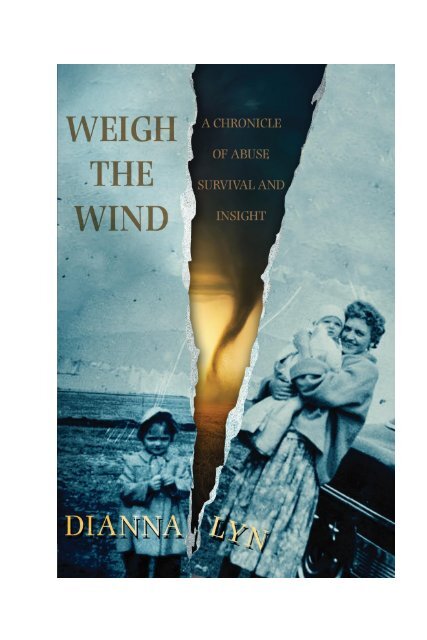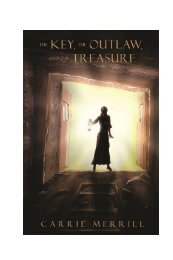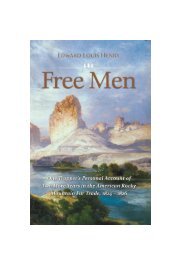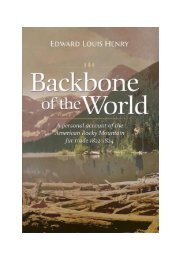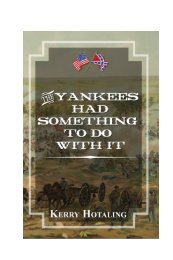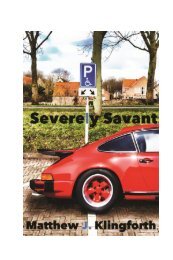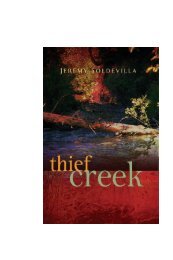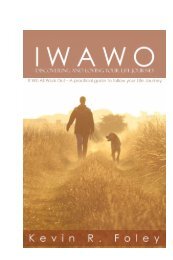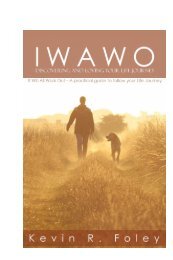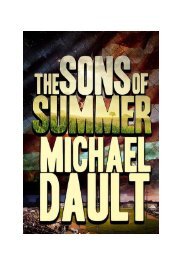Weigh the Wind
Written from daily journals, Weigh The Wind chronicles the author’s life story from unloved girl child to insightful adult woman. The journey winds through surviving a near honor killing at the hands of her ethnic farm parents to a storm of daily life with an alcoholic, drug addict and spousal abuser. An understanding emerges as to why a smart, professional woman becomes so susceptible. How difficult is it really to overcome ingrained childhood beliefs? What gifts do we possess to conquer our fears and internal critics? Self-discover where true love is and where it isn’t. The author’s intuitive path leads to consciousness, clarity and caring for self and others with an awakening and awareness of purpose for the bigger picture of our being on this planet.
Written from daily journals, Weigh The Wind chronicles the author’s life story from unloved girl child to insightful adult woman. The journey winds through surviving a near honor killing at the hands of her ethnic farm parents to a storm of daily life with an alcoholic, drug addict and spousal abuser. An understanding emerges as to why a smart, professional woman becomes so susceptible. How difficult is it really to overcome ingrained childhood beliefs? What gifts do we possess to conquer our fears and internal critics? Self-discover where true love is and where it isn’t. The author’s intuitive path leads to consciousness, clarity and caring for self and others with an awakening and awareness of purpose for the bigger picture of our being on this planet.
You also want an ePaper? Increase the reach of your titles
YUMPU automatically turns print PDFs into web optimized ePapers that Google loves.
<strong>Weigh</strong> <strong>the</strong> <strong>Wind</strong><br />
Copyright © 2017 by Christopher Mat<strong>the</strong>ws Publishing<br />
All rights reserved. Except as permitted under <strong>the</strong> U.S. Copyright Act of<br />
1976, no part of this publication may be reproduced, distributed or<br />
transmitted in any form or by any means, or stored in a database or retrieval<br />
system without <strong>the</strong> prior written permission of <strong>the</strong> author.<br />
Editor: Jeremy Soldevilla<br />
Cover design: MJC Imageworks<br />
Typeface: Georgia<br />
ISBN 978-1-945146-16-8<br />
ebook ISBN 978-1-945146-17-6<br />
Christopher Mat<strong>the</strong>ws Publishing<br />
http://christophermat<strong>the</strong>wspub.com<br />
Boston<br />
Printed in <strong>the</strong> United States of America
To my daughter,<br />
whom I love,<br />
to infinity and beyond,<br />
up, down and all around.
Note to Readers<br />
Names and some identifying details of persons<br />
portrayed in this book have been changed.
Introduction<br />
THROUGHOUT MY LIFE, <strong>the</strong>re has been a persistent and nagging voice in<br />
my head that told me I was unlovable and different—alien even. To <strong>the</strong> world,<br />
I appeared happy and secure as I kept up <strong>the</strong> façade by plastering on a smile<br />
and pretending I was okay. Inside me was a bottomless pit of yearning for<br />
someone, anyone, to love me. What could have created such a needy and lovestarved<br />
human? Where does this longing come from, and does everyone have<br />
it? Why was it so great in me?<br />
Being so giving, so forgiving and so nice, I tried hard to be "kept" by<br />
anyone and not tossed aside like I never mattered. Every day "Please love me"<br />
ran through my mind as I whispered it to <strong>the</strong> universe. I had never felt normal,<br />
for I lacked <strong>the</strong> confidence, self-esteem, and value in myself that came so<br />
naturally, it appeared, to everyone else. I would people watch in <strong>the</strong> everyday<br />
world and wish I was anyone else but me. Becoming a chameleon, I could<br />
blend in without being visible, without complaining, without asking for<br />
anything, without being true to myself. I became a people-pleaser and yes—a<br />
person so maybe <strong>the</strong>n, this time, I would be loved. Why was I so damaged with<br />
such a huge hole in my heart?<br />
Searching for normal, for love, I tried to figure out life and how I should<br />
be acting by reading and watching o<strong>the</strong>rs. Where was <strong>the</strong> love I witnessed on<br />
television, for I was a TV Generation kid longing for <strong>the</strong> Cleaver parents so<br />
caring, understanding and affectionate? Where was <strong>the</strong> love I read about in<br />
romance novels as a teenager? This was <strong>the</strong> love that conquered all adversity<br />
with <strong>the</strong> white knight riding in to rescue a distressed damsel. Where was <strong>the</strong><br />
happily ever after and <strong>the</strong> white picket fence kind of relationship I so<br />
desperately sought? I wanted a Mister Darcy. Why did <strong>the</strong>se kinds of love<br />
elude me? I was gypped out of <strong>the</strong> encircling arms of adoring parents and <strong>the</strong><br />
sheltering embraces of loving partners, and I would look in <strong>the</strong> mirror and<br />
wonder why me? What was wrong with little old me?
Dianna Lyn<br />
For a long time, I pretended that it did not matter that I was not loved,<br />
and I buried my feelings and kept "busy." This was easy to do as I was a<br />
submissive and meek guilt-ridden farmer’s daughter and a conscientious<br />
perfectionist elementary school teacher. The bottom line was that I<br />
desperately wanted to be loved and I searched high and low, but especially<br />
low, and made unwise choices for myself. Somehow, my chooser was broken!<br />
What price love?<br />
For most of my life, I could not risk having feelings—no crying, no<br />
laughing, no anger, no emotions allowed. Emotions were dangerous and<br />
troublesome, and it was in my best interest to show nothing—no reaction. I<br />
had to do what I was told and hide me. Never could I let "<strong>the</strong>m" see me, my<br />
pain, or my neediness. I had to keep tight control on myself. Love was a luxury<br />
emotion I learned early on, and it had to be earned by pure obedience and<br />
subservience, if at all. Yet, I wanted it so badly!<br />
I would, as a child, dream of flying with <strong>the</strong> gentle wind above <strong>the</strong> land,<br />
above <strong>the</strong> farm buildings, above <strong>the</strong> trees, and I would look down to where I<br />
had come from and <strong>the</strong>n I would look up to where I wanted to go—away! I<br />
would feel safe and free for a while in make-believe until reality came crashing<br />
down on me through a loud yell or a crack of <strong>the</strong> belt. I was not wanted from<br />
<strong>the</strong> moment I was born, and my little heart knew and felt it.<br />
Since I was a teenager, I kept a journal where I poured out my emotions<br />
and pain. Here was where a shy, scared, unloved girl expressed "stuff" that<br />
kept bubbling up like <strong>the</strong> artesian well I had discovered on <strong>the</strong> wooded land<br />
while pasturing cows. I ended up behaving as if I was subpar, for prominent<br />
people in my life never confirmed that I was precious or worth cherishing just<br />
as I was. These "takers" saw an "L" on my forehead to mean long-suffering<br />
and lacking and took advantage of my kind heart.<br />
Somehow, I had to erase or replace that "L" so it represented lovable. Why<br />
did I always feel like I was heading into <strong>the</strong> wind? Where could I find<br />
validation for my worth? Who or what would become my savior, my rock and<br />
my soft place to land? Is love really a universal concept we all strive to<br />
understand, comprehend and seize for ourselves? Empowering myself with<br />
knowledge, I lived and survived it all. Wisdom was waiting!<br />
I strove to find peace and love in my life and understand <strong>the</strong> purpose for<br />
it all. Seeking was my necessity to awaken spiritual growth and self-love, for I<br />
had believed that everyone else was more valuable than I. There had to be<br />
more than just this! There just had to be.<br />
2
<strong>Weigh</strong> <strong>the</strong> <strong>Wind</strong><br />
How blessed I was to experience amazing happenings that proved <strong>the</strong>re<br />
was something beyond this life and this world. What lessons had <strong>the</strong> wind<br />
been whispering to me through <strong>the</strong> years?<br />
Learning more from <strong>the</strong> absence of love than <strong>the</strong> presence of love I kept<br />
searching for it outside myself, not realizing that it was an inside job first. I<br />
had to silence a critical and taunting inner voice to become a survivor, a strong<br />
spirit, a loving soul. Many have entered and exited my life—some hindered<br />
me, some hurt me, some betrayed me, some abused me, some sustained me,<br />
some supported me and some did and do love me.<br />
This is <strong>the</strong> story of a most difficult life and a quest to find where love is or<br />
is not! Maybe, if you follow my journey, you will understand and discover<br />
more of who you are and where love is for you as you weigh <strong>the</strong> wind you<br />
encounter.<br />
It was August 2015 when I awoke with abruptness as a clear voice from<br />
someone whispered twice "<strong>Weigh</strong> <strong>the</strong> wind."<br />
Over <strong>the</strong> last five years, I had searched for a title to my book, and I had<br />
discarded dozens. None seemed perfect, and I agonized over a choice. As I<br />
reached in <strong>the</strong> dark for <strong>the</strong> yellow Post-it pad on my night table to write <strong>the</strong><br />
spirited message down, I smiled and was in awe. The title I had been given<br />
seemed intriguing, thought-provoking, reflective, summarizing and very<br />
meaningful for my life. My book was complete, and my journey calmed.<br />
3
4
Chapter One<br />
I Wasn't a Boy<br />
I ENVELOPED MY QUIVERING BODY in my red-flowered comforter as if to<br />
give myself a soothing bear hug like <strong>the</strong> ones my grandmo<strong>the</strong>r had given me as<br />
a little girl. It served as a protective coating as unstoppable tears continued to<br />
fall on my stained cheeks. Great trepidation still gripped me as I positioned<br />
myself cross-legged in front of <strong>the</strong> picture window overlooking <strong>the</strong> quiet, late<br />
night cul de sac.<br />
Would he dare return to torture me fur<strong>the</strong>r?<br />
Though <strong>the</strong> police had escorted him out and promised <strong>the</strong>y would trail his<br />
car across <strong>the</strong> city to his parents' house, I feared he would finish what he had<br />
started.<br />
After everyone’s departure, I ran to unplug <strong>the</strong> garage door openers. The<br />
police had ordered him to hand over <strong>the</strong> house keys, yet I did not know if this<br />
was enough protection or enough deterrent for a raging bully and abuser.<br />
As I sat on <strong>the</strong> carpet, holding vigil in my dark house, my mind raced with<br />
worrisome thoughts. Have I really escaped? How had an intelligent, degreed,<br />
professional woman like me ended up in a life-threatening, degrading<br />
relationship? Why had I tolerated it for so long?<br />
The locks would have to be changed first thing in <strong>the</strong> morning. My daughter<br />
will need to be told of our life change.<br />
Suddenly, I saw car lights turn on <strong>the</strong> cul de sac, and I strained to see if <strong>the</strong>y<br />
belonged to a green Accord—his car. My heart pounded as I shivered and shook<br />
uncontrollably, but <strong>the</strong> lights turned into ano<strong>the</strong>r driveway. Relief!<br />
I returned to my troublesome thoughts. It is most dangerous for a woman<br />
after a perceived separation from her tormentor. I hugged <strong>the</strong> comforter closer<br />
and trembled, quietly sobbing from <strong>the</strong> trauma of it all for so long.<br />
Slowly, I emerged from <strong>the</strong> fear controlling me to realize what a pivotal night<br />
it really had been. The winds of change were afoot. Yet, why had this hell<br />
happened to me? I needed to go back to once upon a time long ago in a land far,<br />
far away across <strong>the</strong> immense windy ocean.<br />
So it begins.
6<br />
MY LIFE BEGAN ON A FARM 20 kilometers east of Winnipeg, Manitoba,<br />
Canada. I was born <strong>the</strong> eldest of three children to parents of Slovak descent. My<br />
parents immigrated to Canada from Czechoslovakia in <strong>the</strong> 1930's. My mo<strong>the</strong>r<br />
was two years old when she crossed <strong>the</strong> Atlantic on a ship called The Statendam<br />
from Rotterdam to New York. It was August 5, 1937.<br />
The Statendam made many trans-Atlantic voyages between 1929 and 1939.<br />
While in Rotterdam port in May 1940, <strong>the</strong> Nazis invaded <strong>the</strong> Ne<strong>the</strong>rlands, and<br />
The Statendam was repeatedly hit by crossfire and burned for five days before<br />
becoming a total loss. Rotterdam was greatly damaged by bombing, and <strong>the</strong>re<br />
was fear that Amsterdam or The Hague would also be devastated, so <strong>the</strong> Dutch<br />
surrendered. Hitler’s menace was spreading fast as <strong>the</strong> violent winds of change<br />
swept Europe.<br />
My fa<strong>the</strong>r was eleven years old when he crossed <strong>the</strong> Atlantic on September<br />
24th, 1938, on a ship called The Volendam. The Volendam was torpedoed by <strong>the</strong><br />
Germans near <strong>the</strong> Irish coast in 1940, but it limped to port and was repaired<br />
over ten months before it entered fur<strong>the</strong>r service. Fa<strong>the</strong>r’s family sailed on <strong>the</strong><br />
last ship that was allowed to carry passengers from Slovakia and o<strong>the</strong>r European<br />
countries to <strong>the</strong> New World.<br />
My mo<strong>the</strong>r’s fa<strong>the</strong>r, my grandfa<strong>the</strong>r, wanted a better and safer life for his<br />
family and chose Canada. Landing in New York after eight days at sea, my<br />
grandparents and <strong>the</strong>ir five children boarded a train to Montreal and <strong>the</strong>n to<br />
Winnipeg. There <strong>the</strong>y stayed at an immigration hall for a few weeks as<br />
grandfa<strong>the</strong>r looked at farms with a real estate agent.<br />
He bought a farm in Meleb, Manitoba far from Winnipeg where land was<br />
cheaper. My mo<strong>the</strong>r’s family had been simple, poor farmers in Slovakia. It was<br />
a hard life in Canada, so Grandfa<strong>the</strong>r had to leave <strong>the</strong> farm and his family to<br />
journey to Pine Falls, Ontario, and fell trees to make extra money.<br />
Grandmo<strong>the</strong>r and my three uncles, who were seven, 12 and 16, had to run<br />
<strong>the</strong> farm with its cows and chickens. The house had huge cockroaches, and<br />
grandmo<strong>the</strong>r tried everything to get rid of <strong>the</strong>m to no avail. Summer brought<br />
throngs of mosquitoes.<br />
The family only spoke Slovak, but <strong>the</strong>y slowly learned to speak English. By<br />
coming to Canada, my brave ancestors gave me <strong>the</strong> freedom to be whoever I<br />
wanted to be. I was born in <strong>the</strong> best country in <strong>the</strong> world!<br />
By 1944, my grandparents had ten children. Uncle Adam’s parents both died of<br />
tuberculosis before he was ten, so he was adopted by my grandparents and<br />
immigrated to Canada with <strong>the</strong>m. The day of Uncle Adam’s mo<strong>the</strong>r’s funeral, in<br />
Slovakia, my grandparents lost <strong>the</strong>ir four-year-old son, Stefan, to heat stroke.<br />
My mo<strong>the</strong>r was <strong>the</strong> fifth child born to my grandmo<strong>the</strong>r Irena.
My grandmo<strong>the</strong>r, Irena, was born in Zastrania, Slovakia April 6, 1906, to<br />
Anna Martinek, my great grandmo<strong>the</strong>r. Anna, apparently a very beautiful young<br />
woman, had an affair with <strong>the</strong> local count who owned <strong>the</strong> nearby Budatin Castle.<br />
The 13th-century castle was owned by <strong>the</strong> prominent Hungarian family from<br />
1798 until 1945 when it became a museum of Slovak artifacts and history. Anna<br />
became pregnant with grandmo<strong>the</strong>r and was rejected and denied by <strong>the</strong> married<br />
count. Apparently, this count had an eye for <strong>the</strong> young ladies, and no female was<br />
safe from his advances. This means that I have some royal blood in me.<br />
Anna hated her daughter and made her do heavy chores while o<strong>the</strong>r children<br />
got to play. Grandma would be beaten for <strong>the</strong> smallest thing. I suspect my great<br />
grandmo<strong>the</strong>r took out her frustrations and embarrassment on my lovely<br />
grandmo<strong>the</strong>r since having a child out of wedlock would have been a scandal in<br />
<strong>the</strong> village.<br />
It was a tough life for a young girl. Grandma was two when Anna married<br />
Petr Duris, and her stepfa<strong>the</strong>r was very gentle and kind to her. Unfortunately,<br />
he often wasn’t home because he had to work in coal mines far away. When he<br />
was away, grandmo<strong>the</strong>r was again beaten and yelled at continually by her<br />
mo<strong>the</strong>r and grandmo<strong>the</strong>r. Grandma’s stepfa<strong>the</strong>r was <strong>the</strong> only one to show her<br />
love, and somehow, with that little kindness, she retained her sunny disposition<br />
and positive outlook on life, for this is how I would know her to be. Petr died of<br />
black lung when he was 38 years of age. My grandmo<strong>the</strong>r was unloved again for<br />
a time.<br />
Next door to my grandmo<strong>the</strong>r’s house lived a boy who was four years older<br />
than her. She caught his eye because she was such a hard worker. That boy was<br />
my grandfa<strong>the</strong>r, Joseph. They were married in 1924 when grandmo<strong>the</strong>r was 18<br />
and grandfa<strong>the</strong>r was 22. Though my grandmo<strong>the</strong>r loved her husband totally, I<br />
know that he was harsh and abusive towards her at times. In those days, women<br />
did not leave <strong>the</strong>ir husbands and divorce was unheard of for Catholics.<br />
Everything had to be tolerated and put up with as a woman, and my cheerful<br />
grandmo<strong>the</strong>r excelled at it.<br />
My fa<strong>the</strong>r’s family came from Hornany, Slovakia. The day <strong>the</strong>y left <strong>the</strong>ir village,<br />
tanks were rolling up <strong>the</strong> main street in anticipation of war. The family of three<br />
children and parents took a train to Prague and <strong>the</strong>n on to Holland. So many<br />
people were leaving Europe for America that <strong>the</strong> ships in <strong>the</strong> harbor were filled<br />
to capacity. The family had to wait in a hotel for a week until ano<strong>the</strong>r ship<br />
arrived.<br />
My grandfa<strong>the</strong>r knew a lot about America as he had worked a number of<br />
years in <strong>the</strong> mines in <strong>the</strong> States. My grandmo<strong>the</strong>r’s bro<strong>the</strong>r had immigrated a<br />
few years previously to New York, and he greeted <strong>the</strong> family when <strong>the</strong>y arrived.
8<br />
The USA was not accepting immigrants in 1938, so my fa<strong>the</strong>r’s family came to<br />
Canada. My grandfa<strong>the</strong>r, Joseph, and his older bro<strong>the</strong>r Vincent’s family<br />
immigrated at <strong>the</strong> same time and bought farms in sou<strong>the</strong>rn Manitoba where<br />
o<strong>the</strong>r Slovaks had already settled.<br />
The two families shared horses and machinery as money was scarce. Slovak<br />
immigrants were only allowed to take a fraction of <strong>the</strong>ir money with <strong>the</strong>m when<br />
<strong>the</strong>y left Slovakia. My fa<strong>the</strong>r’s family was quite wealthy in Hornany and had<br />
servants for <strong>the</strong> house and farm. With <strong>the</strong> money grandfa<strong>the</strong>r made in <strong>the</strong><br />
States, <strong>the</strong>y had built a new two-story house and barn just outside <strong>the</strong> village.<br />
Everything was left behind and entrusted to a relative named Peter. Thirty<br />
years later, my grandparents received a small portion of <strong>the</strong> farm’s worth. My<br />
grandmo<strong>the</strong>r, Helena, never liked Canada and always dreamed of returning to<br />
Slovakia. In Canada, she had no servants and often she was left to run <strong>the</strong> farm<br />
with <strong>the</strong> two boys and one girl as grandfa<strong>the</strong>r left for <strong>the</strong> States to work.<br />
My grandmo<strong>the</strong>r was born Helena Warenyi on September 20, 1891. She had an<br />
older bro<strong>the</strong>r, John, born in 1882 that lived in New Hyde Park, New York. John<br />
had a son, William, and daughters, Anna and Helen.<br />
William J. Warenyi, Private First Class, served with <strong>the</strong> 334th Infantry<br />
Regiment, 84th Division for <strong>the</strong> USA and was killed in Granterath-Hetzerath,<br />
Germany on February 26, 1945. William was buried in <strong>the</strong> Ne<strong>the</strong>rlands<br />
American Cemetery and Memorial in Margraten, Ne<strong>the</strong>rlands. William, only 19<br />
years of age, received a purple heart posthumously for being killed in action<br />
against an enemy of <strong>the</strong> United States. It is affecting that William would be<br />
buried in <strong>the</strong> country that both my families departed from to find a new life in<br />
America.<br />
Anna married a William Shattuck and had three daughters and two sons who<br />
live in New York and Florida.<br />
My grandmo<strong>the</strong>r loved and was engaged to a man who died in World War I. He<br />
was her true love. When my grandfa<strong>the</strong>r started courting her, she thought he<br />
was too short and so wasn’t very interested. Finally, after grandfa<strong>the</strong>r persisted,<br />
she agreed to marry him in 1923. My grandfa<strong>the</strong>r died in 1954, <strong>the</strong> year before I<br />
was born.<br />
Since he liked nice clo<strong>the</strong>s, stylish hats, ivory handled canes, and expensive<br />
rings, I do not think he wanted to be a farmer. The doctor told my grandfa<strong>the</strong>r<br />
to give up smoking, drinking and rich foods. He refused to do that and said he<br />
would ra<strong>the</strong>r die. Joseph died of a heart attack at <strong>the</strong> age of 64. How I have<br />
wished I could have had him in my life, for I think I would have really liked him.
I understand why my grandmo<strong>the</strong>r was always so serious and bitter. It would be<br />
my fa<strong>the</strong>r, <strong>the</strong> baby of <strong>the</strong> family, who remained my grandmo<strong>the</strong>r’s favorite all<br />
her life, much to my mo<strong>the</strong>r’s vexation.<br />
My fa<strong>the</strong>r had only a Grade 7 education because he was needed on <strong>the</strong> farm full<br />
time since grandfa<strong>the</strong>r was often gone to <strong>the</strong> United States to make extra money.<br />
The family grew sugar beets, clover, millet, buckwheat and raised turkeys, cattle,<br />
chickens and pigs. Later, <strong>the</strong>y grew wheat, oats and barley.<br />
On Sundays, <strong>the</strong> family attended mass at a Slovak Roman Catholic Church<br />
in Winnipeg. It was here that my fa<strong>the</strong>r met my mo<strong>the</strong>r. Her family also<br />
attended <strong>the</strong> Slovak Church once <strong>the</strong>y moved closer to Winnipeg to farm. My<br />
fa<strong>the</strong>r’s older bro<strong>the</strong>r, Fredric, had mental issues. Grandmo<strong>the</strong>r would tell me<br />
that back in Slovakia he’d been beaten over <strong>the</strong> head with a stick by a teacher<br />
that left welts as big as sausages. He was never <strong>the</strong> same after that beating she<br />
said. Grandmo<strong>the</strong>r and Fredric had a home across <strong>the</strong> yard from my fa<strong>the</strong>r and<br />
mo<strong>the</strong>r.<br />
When I was young, I was very scared of my uncle. He would expose himself<br />
anytime and anywhere around <strong>the</strong> farm. I remember seeing his penis and<br />
running away, scared to death. Today this is called indecent exposure. He would<br />
just grin and laugh, so it was a family decision to commit him to a communal<br />
home in Pine Falls. After he left, he was seldom talked about, and he died of<br />
stomach cancer when I was a teenager. My fa<strong>the</strong>r acquired <strong>the</strong> farm from my<br />
grandmo<strong>the</strong>r and took over <strong>the</strong> mortgage.<br />
My mo<strong>the</strong>r’s family had moved closer to Winnipeg to Stonewall, Manitoba after<br />
buying <strong>the</strong> farm of William Kurelek’s family. Kurelek, a famous Ukrainian<br />
Canadian painter, would visit a few times a year to take pictures of his old<br />
homestead. He would include in his paintings <strong>the</strong> red barn and white stone<br />
cheese factory that I remembered seeing when I was a child visiting my<br />
grandparents.<br />
Some of my earliest memories as a child were of that white-washed cheese<br />
factory and <strong>the</strong> two-story house with a hand pump for water by <strong>the</strong> kitchen sink.<br />
I remember <strong>the</strong> dark hallway, <strong>the</strong> creaky wooden steps that led to <strong>the</strong> upstairs,<br />
and <strong>the</strong> prevailing musty smell throughout <strong>the</strong> dim house. In early 1962, my<br />
grandparent’s house burnt to <strong>the</strong> ground mysteriously, or not so mysteriously,<br />
and a new one was built.<br />
My mo<strong>the</strong>r completed Grade 9 and had to quit because it was difficult riding<br />
a bicycle to <strong>the</strong> high school in Stonewall many kilometers away. The road was<br />
not paved, and she would often get <strong>the</strong> wheels clogged with mud so that <strong>the</strong> bike<br />
had to be walked and pushed.
By now, her family had a large dairy herd, so she stayed home to help on <strong>the</strong><br />
farm for a year. After that, her older sister got married and persuaded my mo<strong>the</strong>r<br />
to move in with her and her husband for a few months until she got used to living<br />
in <strong>the</strong> city.<br />
The two sisters worked at Rice Sportswear, sewing. My mo<strong>the</strong>r liked her job<br />
on <strong>the</strong> buttonhole machine as it paid good money. She got a room a few blocks<br />
from work and went home every weekend by bus to <strong>the</strong> farm. Being only 18,<br />
buxom and good looking, her boss would often sexually harass her, which was<br />
very upsetting for her. He wanted my mo<strong>the</strong>r to take a typing course so she could<br />
become his personal secretary. It was at this time that my mo<strong>the</strong>r met my fa<strong>the</strong>r<br />
at church.<br />
My mo<strong>the</strong>r’s oldest living bro<strong>the</strong>r, Victor, was very handsome and was wellliked<br />
by <strong>the</strong> ladies. He enlisted in <strong>the</strong> army in <strong>the</strong> Princess Patricia’s Light<br />
Infantry while underage. Uncle met his future wife, Janie, at a boarding house<br />
in Thunder Bay while working in <strong>the</strong> lumber camps. They married and bought a<br />
farm near Stonewall. Both of <strong>the</strong>ir sons were born with birth defects.<br />
My uncle ran a still in <strong>the</strong> back of <strong>the</strong> barn. The animal smells hid <strong>the</strong> odor<br />
of grain brewing. I remember my fa<strong>the</strong>r getting a large glass jug of clear liquid<br />
from my uncle. He brought it home and proceeded to bury it under one of <strong>the</strong><br />
fence posts that enclosed <strong>the</strong> cow pasture. There it remained for a long time till<br />
my fa<strong>the</strong>r decided to dig it up. My fa<strong>the</strong>r forgot under which post he had buried<br />
it, and it was never found. One night, my uncle’s barn burned down, and he lost<br />
<strong>the</strong> still and most of his livestock and goat. That was <strong>the</strong> end of risking<br />
everything by illegally brewing alcohol.<br />
I loved visiting my aunt and uncle’s place. We were always treated nicely,<br />
and my cousins would take us to <strong>the</strong> huge haystack where we could rearrange<br />
<strong>the</strong> bales to make forts. We were not allowed to touch our haystack at home for<br />
playing on. My cousins had tons of comics about Superman, X-Men, and Archie.<br />
They would let us borrow <strong>the</strong>m so we could take <strong>the</strong>m home to read. How I loved<br />
perusing <strong>the</strong>m late at night. I would take a flashlight and read under <strong>the</strong> covers<br />
so my parents did not know. I made my sister promise not to tell. Before long, I<br />
was caught and yelled at for wasting <strong>the</strong> flashlight battery and ruining my eyes.<br />
When I had to get glasses, this was one of <strong>the</strong> reasons my parents said caused<br />
my poor eyesight.<br />
The whole front of my uncle’s farm had two half-mile long rows of mature<br />
trees. I loved walking down <strong>the</strong> middle of those trees with my cousins. Today, in<br />
my kitchen, I have a picture of two people strolling in <strong>the</strong> distance between two<br />
rows of trees. That picture reminds me of my cousin Junior, who I have not seen<br />
in over 45 years.<br />
10
The second eldest bro<strong>the</strong>r, Don, remained single until his sixties. He remained<br />
on <strong>the</strong> Stonewall family farm and continued to run it with my mo<strong>the</strong>r’s youngest<br />
bro<strong>the</strong>r after my grandparents retired and moved to Winnipeg.<br />
Tom, <strong>the</strong> younger bro<strong>the</strong>r, married a woman who was divorced with one<br />
child. To a Catholic family in <strong>the</strong> 1970s, this was scandalous. They lived toge<strong>the</strong>r<br />
many years before making it legal.<br />
I would hear my parents talk about this frequently, and Cindy had a difficult<br />
time being accepted by <strong>the</strong> whole family. Uncle Tommy was an energetic, happy<br />
and friendly man, and I admired him for wea<strong>the</strong>ring <strong>the</strong> family gossip mill. He<br />
passed away quite suddenly in 2012 from cancer, as did Cindy six months later.<br />
Uncle Don would not marry till <strong>the</strong> farm was sold to people from Holland in<br />
1997. Nei<strong>the</strong>r of my uncles had any sons, and after a lifetime of being tied down<br />
to a large dairy and grain farm and worrying about <strong>the</strong> wea<strong>the</strong>r, <strong>the</strong>y decided to<br />
sell. Both of my uncles remained good friends with <strong>the</strong> new Dutch family and<br />
often helped <strong>the</strong>m on <strong>the</strong> farm.<br />
Shortly after selling <strong>the</strong> farm, Uncle Don began corresponding with a<br />
woman from Slovakia who had an 18-year-old daughter. He brought <strong>the</strong>m to<br />
Canada and promptly married <strong>the</strong> woman.<br />
At <strong>the</strong> age of 67, Uncle Don was smitten. The 47-year-old woman saw it as<br />
an opportunity to remain in Canada. She came to live in Uncle Don’s new house<br />
in north Winnipeg with her daughter.<br />
Uncle Don would drive <strong>the</strong> daughter to and from <strong>the</strong> local high school.<br />
Everything was great for two months after <strong>the</strong> wedding. Then <strong>the</strong> new bride<br />
became very physically abusive to my uncle. He was able to relate <strong>the</strong> whole story<br />
to me when I visited him many years later in 2007. He needed someone to just<br />
listen to his pain and shame.<br />
At one point, rumors in <strong>the</strong> family circulated that Uncle Don was gay<br />
because he had a best, close male friend. My mo<strong>the</strong>r would say he never married<br />
because he had a hernia that had never been medically attended to. Uncle Don<br />
was tall, dark haired and handsome, and always treated us children kindly. He<br />
would buy us Christmas presents every year. I still have <strong>the</strong> two Snow White and<br />
Frosty <strong>the</strong> Snowman music boxes I received as a teenager from him.<br />
Uncle Tommy helped Uncle Don get away from his wife and file for divorce.<br />
He ended up having to pay her a lot of his hard-earned money, and she and her<br />
daughter remained in Winnipeg after Uncle Don got his house back.<br />
As children, we went to visit <strong>the</strong> Stonewall farm where my mo<strong>the</strong>r grew up a<br />
couple times a year. The large barn had at least 60 Holstein cows on ei<strong>the</strong>r side,<br />
with automated drinking bowls. The cow would put her nose in <strong>the</strong> bowl, which<br />
depressed a lever and water flowed in. My uncles had <strong>the</strong> most modern milking
12<br />
machines and a huge milk tank for storage. I envied <strong>the</strong>m because my parent’s<br />
dairy had no amenities.<br />
All of us had to milk cows by hand and water <strong>the</strong>m outside in troughs or<br />
inside by pails. To this day, I have large biceps from all that milking I did by<br />
hand. My uncles’ house smelled of disinfectant always. They didn’t like us going<br />
into <strong>the</strong> barn because <strong>the</strong>y said <strong>the</strong> cows gave less milk <strong>the</strong> next day as if we<br />
upset <strong>the</strong>m or something.<br />
Aunt Dora was my mo<strong>the</strong>r’s older sister. She lived in Transcona with her<br />
husband and three children. She was <strong>the</strong> bossiest, most outspoken, gossipy and<br />
unkind person you could ever meet, and similar to my mo<strong>the</strong>r.<br />
When <strong>the</strong>se city slickers unexpectedly visited us on <strong>the</strong> farm, <strong>the</strong>y would<br />
arrive with <strong>the</strong>ir superior attitude and flaunt <strong>the</strong>ir fancy clo<strong>the</strong>s, newest toys and<br />
store-bought candy. We were dressed in dirty and worn farm clo<strong>the</strong>s. To this day<br />
I do not like people just dropping in to visit without calling first.<br />
I don’t remember <strong>the</strong>m ever bringing us any treats, but <strong>the</strong>y would eat <strong>the</strong>irs<br />
in front of us. I remember feeling jealous and hurt, and maybe this was when a<br />
seed began germinating inside me that someday I would be that city slicker and<br />
I would have nice clo<strong>the</strong>s and store-bought treats.<br />
Aunt Dora’s family was very religious and attended Catholic mass every<br />
Sunday where my cousin Bert was an altar boy. The oldest daughter, Emma, had<br />
just begun attending <strong>the</strong> University of Manitoba when she was struck by a city<br />
transit bus and was left a paraplegic. My aunt took her to Lourdes, France, where<br />
believers come for miraculous healings, but nothing happened. After that<br />
disappointing trip, none of <strong>the</strong> family attended church ever again.<br />
Aunt Dora became more cynical and nasty, picking fights at Christmas and<br />
Easter family ga<strong>the</strong>rings especially about money issues. Bert never married, and<br />
because he had many feminine mannerisms, <strong>the</strong> gossip in <strong>the</strong> family was that he<br />
was gay. Again, <strong>the</strong> narrow-mindedness of my family that professed to be so holy<br />
and Catholic seeped through. I watched all this through <strong>the</strong> eyes of a child that<br />
even <strong>the</strong>n sought to be and do <strong>the</strong> opposite.<br />
Aunt Dora’s youngest daughter, Margie, would always fight with my sister,<br />
who was <strong>the</strong> same age when <strong>the</strong>y visited. My sister, as a toddler, resorted to<br />
biting Margie whenever <strong>the</strong>y fought. Aunt Dora would say that something was<br />
wrong with my sister because, of course, her daughter was innocent.<br />
Years later, when I attended <strong>the</strong> University of Manitoba, I would see Bert<br />
and Emma, in her wheelchair, at <strong>the</strong> university now and <strong>the</strong>n. After that, we<br />
never kept in touch and <strong>the</strong> family retired to <strong>the</strong> Okanagan. Aunt Dora suffered<br />
many years with Alzheimer’s disease before passing.
Beside my aunt’s Transcona home was <strong>the</strong> Starlite Drive-in. My cousins<br />
would take us to <strong>the</strong> drive-in after dark, and we would sneak under <strong>the</strong> fence at<br />
<strong>the</strong> very back and turn on <strong>the</strong> speaker. Then we would sit with our backs against<br />
<strong>the</strong> metal fence and watch <strong>the</strong> movie for free. No one ever bo<strong>the</strong>red with us.<br />
My mo<strong>the</strong>r’s younger sister, Lisa, got married and lived in Calgary and<br />
Vernon. I remember <strong>the</strong>m visiting us on <strong>the</strong> farm a few times when I was young.<br />
She arrived in short skirts and mink stoles. My Uncle Ted was very handsome<br />
and very likable for he had <strong>the</strong> gift of <strong>the</strong> gab. Unfortunately, he was an alcoholic<br />
and passed away at 54 of cirrhosis of <strong>the</strong> liver while his two sons were very<br />
young.<br />
I remember my uncle telling us kids to go in <strong>the</strong> garden and pick him some<br />
peas for which he would give us each a quarter. My fa<strong>the</strong>r and he would get<br />
drunk, and while Uncle Ted would become happier and happier, my fa<strong>the</strong>r<br />
would become meaner and meaner. I liked my uncle, but I hated when he<br />
encouraged my fa<strong>the</strong>r to meet him drink for drink.<br />
After <strong>the</strong>y left, we were saddled with a mean and nasty fa<strong>the</strong>r who would run<br />
to his mo<strong>the</strong>r on <strong>the</strong> o<strong>the</strong>r section of land, where she now lived, because of my<br />
parents' fighting. My mo<strong>the</strong>r and we kids were left to do all <strong>the</strong> chores alone. My<br />
mo<strong>the</strong>r hated when my fa<strong>the</strong>r ran to his mo<strong>the</strong>r whenever <strong>the</strong>y had a fight. She<br />
never had love for her mo<strong>the</strong>r-in-law, and she treated my grandmo<strong>the</strong>r horribly.<br />
My youngest aunt, who was beautiful and gregarious, married a very abusive<br />
overweight older man. After three daughters she was brave enough to leave him<br />
and get a divorce. The middle daughter was born deaf. Again, <strong>the</strong>re was a<br />
scandal in <strong>the</strong> family, and everyone gossiped.<br />
I was a teenager at <strong>the</strong> time, and I remember feeling proud of my aunt for<br />
leaving her situation, and this may have stuck in my mind for later reference.<br />
She raised her daughters and later met a wonderful man whom she married<br />
and moved to British Columbia with. I remember visiting my cousins a few times<br />
in Transcona where <strong>the</strong>y lived and where my aunt helped her first husband<br />
grease and repair <strong>the</strong> gravel truck he used to haul sand and rock for road<br />
construction.<br />
Before <strong>the</strong>y had moved to Transcona, <strong>the</strong> family lived somewhere near<br />
Beausejour on a farm. I remember going <strong>the</strong>re once to visit. My cousins took us<br />
down into <strong>the</strong>ir dark and dingy basement. All over <strong>the</strong> walls, in white paint, were<br />
<strong>the</strong> words danger, keep out, Jack <strong>the</strong> Ripper was here, and a skull and<br />
crossbones was depicted. I was so scared. Needless to say, I did not stay down<br />
<strong>the</strong>re very long, and I had nightmares for a few nights.
14<br />
In <strong>the</strong> spring of 1954, <strong>the</strong> Slovak Catholic Church on Mountain Avenue was<br />
having a tea, and it was <strong>the</strong>re that my fa<strong>the</strong>r noticed my mo<strong>the</strong>r. The tea was in<br />
<strong>the</strong> basement where <strong>the</strong> women and young girls were preparing and serving<br />
finger sandwiches and dainties with tea or coffee. He kept accepting everything<br />
she served him, including <strong>the</strong> sandwiches that he did not like. He ended up<br />
stuffing <strong>the</strong>m into his pockets.<br />
Apparently, at <strong>the</strong> age of 18, my mo<strong>the</strong>r had dated lots of boys. My fa<strong>the</strong>r<br />
was eight years older than she was and she thought he was more mature and<br />
responsible. From that tea, my fa<strong>the</strong>r was brave enough to ask if he could drive<br />
my mo<strong>the</strong>r home to Broadway Avenue in <strong>the</strong> city center from North Main. My<br />
fa<strong>the</strong>r had a beautiful car that was his pride and joy, and I think my mo<strong>the</strong>r was<br />
impressed. She was tired of living alone in <strong>the</strong> big city and being sexually<br />
harassed by her boss at work.<br />
My parents saw each o<strong>the</strong>r all that spring. When my fa<strong>the</strong>r’s dad passed<br />
away that April, my mo<strong>the</strong>r went to <strong>the</strong> funeral and met <strong>the</strong> rest of <strong>the</strong> family for<br />
<strong>the</strong> first time. They were engaged in October and were married at <strong>the</strong> church<br />
<strong>the</strong>y met in.<br />
The reception was in a hall in St. Boniface which was catered by <strong>the</strong> ladies<br />
of <strong>the</strong> church, as was <strong>the</strong> custom. There was no honeymoon as <strong>the</strong>re was much<br />
fall field work to be done.<br />
Fa<strong>the</strong>r had built a house that was hard to get to on a dirt road, so <strong>the</strong><br />
following summer it was moved to <strong>the</strong> original homestead site across from my<br />
grandmo<strong>the</strong>r’s house.<br />
I was born July 11, 1955, and was named Dianna Lyn after <strong>the</strong> actress Diana<br />
Lynn. The nurse who filled out my birth certificate spelled <strong>the</strong> name incorrectly.<br />
I was told all <strong>the</strong> nurses at <strong>the</strong> St. Anne Hospital told my mo<strong>the</strong>r that I was <strong>the</strong><br />
prettiest baby <strong>the</strong>y had ever seen.<br />
A woman in <strong>the</strong> bed next to my mo<strong>the</strong>r had just had a baby boy, and she<br />
jokingly said maybe <strong>the</strong> two of us would be married someday. Years later, when<br />
I was teaching in Lorette, this baby, now a man, came to our school to read from<br />
<strong>the</strong> children’s book he had published. Deep down, I have always felt that I had<br />
been switched at birth and that really I had ano<strong>the</strong>r biological family<br />
somewhere, mainly because I was so different from all of mine.<br />
Never would I be called Dianna by my parents or siblings, and <strong>the</strong>y not<br />
calling me by my birth name left me feeling disconnected somehow. Though my<br />
bro<strong>the</strong>r and sister were addressed by <strong>the</strong>ir actual given names, I would be<br />
called "Dien" and never Dianna. When I found my voice later in life, I would<br />
insist on being called Dianna and not Diane or Dee or Di or anything else, and I<br />
would emphasize that my name be spelled with two ns and an 'a' at <strong>the</strong> end.
Maybe this, and o<strong>the</strong>r traumatic events in my childhood created an identity<br />
crisis in me as I searched my whole life to find and know myself. I remember<br />
reading Lucy Maud Montgomery’s Anne of Green Gables and identifying fully<br />
with Anne with an "e" who had a best friend named Diana. I just wanted so badly<br />
to be loved and acknowledged for me! To this day my siblings call me Dianne or<br />
Sis and address letters to me as Dianne. Only recently have I had a brave enough<br />
voice to correct <strong>the</strong>m, but it does not matter so much anymore as I know better<br />
who I truly am.<br />
My fa<strong>the</strong>r would not come to <strong>the</strong> hospital and pick up my mo<strong>the</strong>r and me<br />
because I was not born a boy. In those days, men never stayed to witness any<br />
aspect of <strong>the</strong> birthing process. My fa<strong>the</strong>r only wanted a son who would take over<br />
<strong>the</strong> farm someday. It was my fa<strong>the</strong>r’s bro<strong>the</strong>r, Fredric, who picked us up and<br />
drove us home. I would hear all my life <strong>the</strong> laments on why were you not born a<br />
boy and since you are not <strong>the</strong> firstborn son, <strong>the</strong>n you will marry a farmer. That<br />
son-in-law would work alongside my fa<strong>the</strong>r and someday take over <strong>the</strong> farm and<br />
continue <strong>the</strong> legacy.<br />
Fa<strong>the</strong>r would berate my mo<strong>the</strong>r about not having a boy first because it was<br />
all her fault. I shall never forget <strong>the</strong> day, in Grade 12 Biology, that I learned it<br />
was <strong>the</strong> man who determined <strong>the</strong> sex of <strong>the</strong> baby by donating ei<strong>the</strong>r an x or a y<br />
chromosome. I took my textbook home to show my fa<strong>the</strong>r, but of course, he<br />
would not listen and called it hogwash. After all those years of blaming my<br />
mo<strong>the</strong>r for me being a girl it really was him who determined it.<br />
Nothing changed, for it still was my destiny to bring a son-in-law into <strong>the</strong><br />
family who would farm alongside my fa<strong>the</strong>r and allow both of <strong>the</strong>m to have an<br />
easier and boastful life.<br />
I started walking at nine months, and I was a "good" baby. I seldom cried and<br />
slept most of <strong>the</strong> time, so my mo<strong>the</strong>r was still able to help with <strong>the</strong> farm chores.<br />
When I was just beginning to crawl, an incident occurred where I was almost<br />
killed. I was left in my grandmo<strong>the</strong>r’s house to sleep while <strong>the</strong> two women went<br />
outside on <strong>the</strong> hot May day to pump water into <strong>the</strong> trough for <strong>the</strong> thirsty cows<br />
coming in from <strong>the</strong> pasture. The cows were pushing and poking each o<strong>the</strong>r as<br />
<strong>the</strong>y vied for a position at <strong>the</strong> trough. Somehow I had let myself out of <strong>the</strong> house,<br />
and <strong>the</strong> two women saw me crawling in among <strong>the</strong> many cows’ feet as <strong>the</strong>y<br />
jostled for water. My mo<strong>the</strong>r screamed and ran to scoop me up. She said that a<br />
guardian angel must have protected me as it really was a miracle that I was not<br />
trampled to death. For all intents and purposes I should have been squashed<br />
and killed, but maybe my destiny was to create significance for my life, and so I
16<br />
was spared. I would search for that higher purpose and meaning in every<br />
situation and with every person placed before me every day I brea<strong>the</strong>d.<br />
Growing up on <strong>the</strong> farm meant <strong>the</strong>re was always much work to be done. My<br />
mo<strong>the</strong>r had to be out in <strong>the</strong> field working side by side with my fa<strong>the</strong>r. My<br />
grandmo<strong>the</strong>r watched me a lot of <strong>the</strong> time in my early childhood. She was not a<br />
demonstrative person, and I always found her to be reserved and serious. I do<br />
remember that she would make potato gnocchi coated with ground poppy seed<br />
and sugar. To this day I can smell and taste those plump little pillows of dough.<br />
My mo<strong>the</strong>r never made <strong>the</strong>m, but she did make donuts and cakes and buns.<br />
During summer haying my parents would buy ice-cream in buckets and my<br />
mo<strong>the</strong>r made homemade popsicles with Jell-O and Kool-Aid. My parents did<br />
not believe in "treating" us children very often, for that was a waste of money<br />
and <strong>the</strong>y would justify <strong>the</strong>ir behavior by saying that <strong>the</strong>y never had treats as kids<br />
so nei<strong>the</strong>r should we.<br />
All of us worked so hard hauling bales and stacking <strong>the</strong>m, and it was a tiring<br />
and hot July job so those rare cool treats spurred us on to toil that much harder.<br />
We were never allowed to just go in <strong>the</strong> fridge and have whatever we wanted.<br />
There was a strict rule, enforced by my mo<strong>the</strong>r, that we had to ask for food and<br />
<strong>the</strong>n she determined what we could or could not have. When our parents left to<br />
<strong>the</strong> city to buy machinery parts we children would dare to sneak a tablespoon<br />
each of ice-cream from <strong>the</strong> basement freezer, but not too much, or our mo<strong>the</strong>r<br />
would discover our treachery and of course, being <strong>the</strong> oldest, I would be yelled<br />
at or even hit for this disobedience.<br />
I must have been about five years of age, and <strong>the</strong>re was a heavy, dense fog<br />
hanging over <strong>the</strong> morning as I walked across <strong>the</strong> yard to my grandmo<strong>the</strong>r’s<br />
house for a visit. Upon running back home, I forgot about <strong>the</strong> barbed wire fence<br />
in <strong>the</strong> fog and ran smack into it. My face and arms were all cut up, and I entered<br />
<strong>the</strong> house crying. It’s funny, but I never remember being comforted or soo<strong>the</strong>d<br />
when I was hurt or when I cried. No cuddles, kisses or hugs. I remember <strong>the</strong><br />
stern voice from ei<strong>the</strong>r of my parents saying, "Detsko, stop crying." In Slovak,<br />
detsko meant kid, and my parents would add an English adjective when <strong>the</strong>y<br />
spoke to me. That adjective would usually be "stupid," "useless" or "hopeless."<br />
The verbs <strong>the</strong>y added in front of detsko were "hurry up," "stop crying," or "come<br />
here" spoken in a strict voice. Detsko became <strong>the</strong> last Slovak word spoken to me<br />
by <strong>the</strong>m well into my adult years and that word still conjures up feelings of being<br />
small, helpless, fearful and powerless. The detsko in me has struggled to be liked<br />
and loved because, as a cute little girl, I was not cherished or comforted by ei<strong>the</strong>r<br />
of my parents. As an adult, I am embracing that little girl and showering her with<br />
love, hugs and kisses. I’ve learned to parent myself in order to heal deep
childhood wounds. I placed a framed picture of little me in my study to<br />
acknowledge and love that young girl every time I am in that room.<br />
When I was older, my mo<strong>the</strong>r insisted on grandmo<strong>the</strong>r’s house being moved to<br />
<strong>the</strong> o<strong>the</strong>r section of <strong>the</strong> farm. My mo<strong>the</strong>r had no liking for her mo<strong>the</strong>r-in- law,<br />
and she saw my fa<strong>the</strong>r as a "mama’s boy." He would leave, by driving to his<br />
mo<strong>the</strong>r’s whenever my parents had a yelling fight even though she now lived<br />
three kilometers away.<br />
During spring teas and fall suppers at <strong>the</strong> Catholic Church, <strong>the</strong> women<br />
busily prepared and served food while <strong>the</strong> men went upstairs to <strong>the</strong> priest’s<br />
parsonage to drink, smoke and play cards. My fa<strong>the</strong>r would drive us home in an<br />
intoxicated condition and proceed to pick a fight with my mo<strong>the</strong>r. He would yell<br />
and call her awful names, throw and break things, and <strong>the</strong>n leave to see his<br />
mo<strong>the</strong>r. We would be left to do all <strong>the</strong> chores again.<br />
My fa<strong>the</strong>r was a mean drunk, and it is to his credit that I never saw him<br />
inebriated after about <strong>the</strong> age of ten. Living on <strong>the</strong> farm and being far from<br />
stores, it was difficult to get alcohol. Also, before marrying my mo<strong>the</strong>r, my fa<strong>the</strong>r<br />
smoked quite a bit, but my mo<strong>the</strong>r put a stop to that immediately. So, as <strong>the</strong><br />
years progressed, she firmly wore <strong>the</strong> pants in <strong>the</strong> family and controlled all <strong>the</strong><br />
business and finances. I would soon find out <strong>the</strong> main reason why <strong>the</strong>y fought<br />
so much.<br />
The section of land where my grandmo<strong>the</strong>r’s house stood had a large bush.<br />
Every spring our young heifers and steers were put <strong>the</strong>re to pasture as it was all<br />
fenced in. My grandmo<strong>the</strong>r looked after <strong>the</strong> cattle all summer before we herded<br />
<strong>the</strong>m down <strong>the</strong> back road to my parent’s farm for <strong>the</strong> winter. Often, <strong>the</strong>re was<br />
not enough room to house all <strong>the</strong> cattle inside <strong>the</strong> barn, so six or so heifers were<br />
kept in <strong>the</strong> chicken coop across <strong>the</strong> yard for winter.<br />
I remember lugging large pails of water in minus 20-degree wea<strong>the</strong>r to <strong>the</strong><br />
coop every day. The water would slosh all over my pants and instantly freeze,<br />
leaving my pant legs stiff and icy. This was one of many chores I dreaded.<br />
A few times, I had to go into <strong>the</strong> chop granary to shovel <strong>the</strong> crushed grain<br />
used to feed <strong>the</strong> cattle, away from <strong>the</strong> spout of <strong>the</strong> crusher. A fly wheel on <strong>the</strong><br />
Massey tractor had a wide belt that operated <strong>the</strong> crusher machine inside <strong>the</strong><br />
wood granary. After about an hour one would come out covered in white powder.<br />
I had a difficult time breathing since <strong>the</strong> air in <strong>the</strong> granary would be full of dust,<br />
and I would feel like I was suffocating.<br />
It was <strong>the</strong> same with augering grain into wood granaries. Someone had to<br />
be inside <strong>the</strong> granary shoveling away <strong>the</strong> grain from <strong>the</strong> auger spout as <strong>the</strong> air<br />
filled with dust.
18<br />
My parents were always stingy with money; my mo<strong>the</strong>r especially. With her<br />
dislike of my grandmo<strong>the</strong>r, she only bought her <strong>the</strong> staples for food. My parents<br />
would take my grandmo<strong>the</strong>r’s pension check and buy her groceries. It was<br />
always <strong>the</strong> bare essentials I am sad to say.<br />
During <strong>the</strong> winter, grandmo<strong>the</strong>r stayed with us, and as she got into her<br />
eighties, my mo<strong>the</strong>r had no choice but to accept her living with us permanently.<br />
The two women seldom spoke to each o<strong>the</strong>r. Grandmo<strong>the</strong>r would sit in her chair<br />
all day and read her Slovak bible. She had a twin bed in <strong>the</strong> basement where she<br />
slept.<br />
As a young girl, I began forming an impression of my mo<strong>the</strong>r as a cold,<br />
mean, unaffectionate woman who ruled by yelling and scare tactics to get me to<br />
obey. It was extra confusing and hurtful to see her lavish affection on my<br />
bro<strong>the</strong>r. My mo<strong>the</strong>r was a parent that played favorites. There came a time when<br />
I understood that my tears of hurt or upset had no effect except to garnish a<br />
retort of, "Stop crying, you crybaby." Today I realize that she was exactly like my<br />
great grandmo<strong>the</strong>r and great-great grandmo<strong>the</strong>r. Meanness ran on that side of<br />
<strong>the</strong> family, but somehow it had skipped a generation with my kind-hearted<br />
grandmo<strong>the</strong>r.<br />
When I was 23 and teaching in Woodridge, I got a phone call saying that my<br />
paternal grandmo<strong>the</strong>r had fallen down <strong>the</strong> basement stairs and she had hit her<br />
head on <strong>the</strong> cement floor. She was rushed to <strong>the</strong> hospital but passed away<br />
February 13, 1979.<br />
There was a blizzard raging, and our neighbor helped me shovel out <strong>the</strong> car.<br />
I drove <strong>the</strong> 100 kilometers from Woodridge to <strong>the</strong> farm on treacherous roads.<br />
The funeral was in Winnipeg at <strong>the</strong> Slovak Church, and I silently cried for I lost<br />
someone who loved me and had done her best to show it.<br />
I sat in <strong>the</strong> front row and remembered when my grandmo<strong>the</strong>r and I stripped<br />
fea<strong>the</strong>rs for pillows or braided strips of colored rags to make coiled rugs or<br />
shelled peas and conversed in Slovak, or <strong>the</strong> times she tried to stand up to my<br />
mo<strong>the</strong>r and support me. I knew I would see her again for my heart was brimming<br />
with love.<br />
When I was two and a half, my bro<strong>the</strong>r was born. My parents were ecstatic I am<br />
sure. Here was <strong>the</strong> boy who would work alongside my fa<strong>the</strong>r and make <strong>the</strong> farm<br />
prosper. Pictures show me standing sadly to <strong>the</strong> side as my mo<strong>the</strong>r smiles<br />
broadly cuddling her precious baby boy; her "prince."<br />
The irony is that my bro<strong>the</strong>r never wanted to remain on <strong>the</strong> farm. He had<br />
little aptitude for farm machinery or <strong>the</strong>ir repairs. My bro<strong>the</strong>r liked books and<br />
school and aspired to do anything but stay on <strong>the</strong> farm. The reason for that was
partly because of <strong>the</strong> way he was treated by our fa<strong>the</strong>r. Who would want to work<br />
alongside a critical, short-tempered and intolerant dictator?<br />
There would eternally be pressure put on me to marry a farmer by both my<br />
parents, and my bro<strong>the</strong>r would be allowed to live his own life.<br />
15 months later, my sister was born.<br />
I was privy to what happened in my parent’s marriage from an early age. In<br />
my teens, my mo<strong>the</strong>r told me that she tried to abort my sister because she did<br />
not want any more children. She punched herself in <strong>the</strong> stomach repeatedly and<br />
wouldn’t eat properly. Nothing worked, and she had to endure <strong>the</strong> pregnancy.<br />
My sister was born a little different with mild learning disabilities and had<br />
an IQ of 90. My mo<strong>the</strong>r was never kind to her, but my fa<strong>the</strong>r would always stick<br />
up for her in any disagreements.<br />
In 2011, my mo<strong>the</strong>r disclosed ano<strong>the</strong>r horrifying secret. Being <strong>the</strong> keeper of<br />
family secrets placed a heavy burden on my psyche all my life. After having me,<br />
my mo<strong>the</strong>r immediately and too quickly got pregnant again. She told me my<br />
fa<strong>the</strong>r kicked her and kicked her in <strong>the</strong> stomach, so she lost <strong>the</strong> unborn child<br />
that was a boy. She had gone outside to <strong>the</strong> side of <strong>the</strong> house, squatted down and<br />
aborted <strong>the</strong> baby. I saw no emotion whatsoever in her relating this to me. How<br />
sad, because that may have been <strong>the</strong> boy who would have loved <strong>the</strong> farm. Maybe<br />
<strong>the</strong>re would have been less pressure placed on me to marry a farmer had he<br />
lived.<br />
I was shocked when I heard this, and later I cried when I was alone. That I<br />
had such cold-hearted parents! They were even colder than I had thought. Today<br />
I realize that this was murder! Maybe I would have had one member of my<br />
biological family who would have loved me.<br />
One of <strong>the</strong> biggest issues in my parents' marriage was sex. As far back as I can<br />
remember I was always put in <strong>the</strong> middle of <strong>the</strong>ir fights. It was not appropriate<br />
that I was <strong>the</strong> sounding board and that I was apprised of all <strong>the</strong>ir personal issues.<br />
Being Catholic, no birth control could be used. My fa<strong>the</strong>r wanted sex, and my<br />
mo<strong>the</strong>r withheld it. He would tell me that she never wanted it. My mo<strong>the</strong>r would<br />
tell me that sex was revolting and she never liked it. Sex was just a wifely duty to<br />
be tolerated, especially since, I suspected, she had no affection for my fa<strong>the</strong>r.<br />
When my mo<strong>the</strong>r was pregnant, she did not have to have sex. It was an<br />
excuse she used to avoid intimate relations with my fa<strong>the</strong>r for as long as she<br />
could. After having "<strong>the</strong> son," she did not want any more children.<br />
My fa<strong>the</strong>r had a violent temper, was very jealous, and he was physically<br />
abusive to us children and especially to me. He would yell at my mo<strong>the</strong>r and be<br />
verbally abusive, but I do not remember him ever physically abusing her. I do
20<br />
not believe that my mo<strong>the</strong>r ever loved my fa<strong>the</strong>r, but divorce was not possible<br />
for a Catholic at that time. I think, over time, he gave up asking for sex, and he<br />
spent as much time as he could outside on <strong>the</strong> farm and away from all of us.<br />
Abstinence was <strong>the</strong> birth control used probably for <strong>the</strong> rest of <strong>the</strong>ir life after my<br />
sister was born. I knew that my mo<strong>the</strong>r would have been happy to just have <strong>the</strong><br />
one son and no daughters at all because it was only to him that she showed<br />
affection right up to <strong>the</strong> day she died.<br />
For a few years, when I was very little, my fa<strong>the</strong>r drove all <strong>the</strong> way to <strong>the</strong> west<br />
side of Winnipeg to work building houses during <strong>the</strong> winter months. I remember<br />
standing on <strong>the</strong> toilet in <strong>the</strong> bathroom, looking out <strong>the</strong> window that faced west,<br />
and watching for car lights coming. All <strong>the</strong> neighbors were also coming home<br />
from work so I never knew which lights were going to be my fa<strong>the</strong>r’s.<br />
I was a normal child watching for my fa<strong>the</strong>r to come home but not receiving<br />
<strong>the</strong> normal fa<strong>the</strong>rly responses upon his coming through <strong>the</strong> door. Mine was not<br />
<strong>the</strong> Cleaver or Nelson family I would see on television. Never would I see my<br />
mo<strong>the</strong>r and fa<strong>the</strong>r kiss, hug or hold hands. I do not remember ever getting hugs<br />
or kisses from ei<strong>the</strong>r of my parents. Ever.<br />
It was when my parents and I went to Winnipeg for machinery parts and<br />
o<strong>the</strong>r errands that fights started in <strong>the</strong> half-ton. I could not escape until we<br />
arrived home. Many trips before, my fa<strong>the</strong>r hinted at some o<strong>the</strong>r secret. He<br />
would threaten to tell me something that would change how I saw my mo<strong>the</strong>r.<br />
"I’m going to tell her, and <strong>the</strong>n she’ll know what you are."<br />
When I was 15, while driving home past Dugald, my mo<strong>the</strong>r did not let <strong>the</strong><br />
fight drop and decided to tell me what my fa<strong>the</strong>r had hanging over her head. My<br />
mo<strong>the</strong>r herself had previously admitted and bragged to me that she had many<br />
boyfriends before my fa<strong>the</strong>r was in <strong>the</strong> picture. She would relate to me <strong>the</strong> barn<br />
dances at Crabby Steve’s and boast how popular she was. One of those<br />
boyfriends had been <strong>the</strong> bro<strong>the</strong>r of Aunt Dora’s husband. Thinking that my<br />
fa<strong>the</strong>r would know she was not a virgin on <strong>the</strong>ir wedding night, she told him that<br />
she had had sex with this younger bro<strong>the</strong>r of her bro<strong>the</strong>r-in-law.<br />
Through <strong>the</strong> whole marriage, my fa<strong>the</strong>r had brought up <strong>the</strong> issue that she<br />
was not a virgin when he married her outside <strong>the</strong> ear shot of us children. Times<br />
had changed, and it was no longer a big deal to have sex before marriage. It<br />
angered my fa<strong>the</strong>r that I would not side with him as I refused to be drawn into<br />
this issue. I know that this city boy she had sex with had <strong>the</strong> same first name as<br />
my fa<strong>the</strong>r, <strong>the</strong> farmer, and I think my mo<strong>the</strong>r lamented that it was <strong>the</strong> farmer<br />
and not <strong>the</strong> city slicker that wanted to marry her. Today I suspect that she<br />
resented me when I chose a city slicker instead of a farmer to marry, which was
totally against her orders and her plan. How angry and jealous she would be that<br />
I would escape my fate of a life of drudgery like she had!<br />
Through <strong>the</strong> years, my mo<strong>the</strong>r had hinted at ano<strong>the</strong>r sexual secret in <strong>the</strong> family.<br />
It wasn’t until 2011 that she told me more. She revealed that when she and my<br />
aunts were in <strong>the</strong>ir teens, my Uncle Don tried to get into bed with each of <strong>the</strong>m<br />
and have sex. She said she fought him off and <strong>the</strong>n quickly changed <strong>the</strong> subject.<br />
I wonder if what she said was really true. Maybe <strong>the</strong>re was more to this secret.<br />
Maybe that was why she wasn’t a virgin on her wedding night. I was too shocked<br />
to pursue <strong>the</strong> issue at that time, but I wish I had. There were so many secrets I<br />
had to carry.<br />
In February of 1964, our house burned down. My bro<strong>the</strong>r and I were at school<br />
two and a half kilometers away. At recess, we were sliding down <strong>the</strong> snow banks<br />
on <strong>the</strong> edge of <strong>the</strong> skating rink when <strong>the</strong> o<strong>the</strong>r kids started pointing to <strong>the</strong> gray<br />
smoke in <strong>the</strong> sky and saying that our house was on fire.<br />
We denied it. It could not be true. I remember worrying all day in school. At<br />
3:30 p.m. it was my aunt and uncle who came to pick us up. Upon arriving at<br />
home, I could see that nothing was left of my house but blackened sticks and<br />
smoldering ash.<br />
The winter snowfall had been especially heavy that year. My sister, who was<br />
not yet school age, was in <strong>the</strong> barn with my parents doing <strong>the</strong> morning chores<br />
when <strong>the</strong> fire started. There was a blustery wind, and it was carrying <strong>the</strong> fire to<br />
<strong>the</strong> detached garage where <strong>the</strong> 1960 Bel Air was housed. A hundred centimeters<br />
of snow was blocking <strong>the</strong> doorway of <strong>the</strong> garage after recent snowstorms. My<br />
parents were frantically shoveling in order to move <strong>the</strong> car out of harm’s way.<br />
Neighbors started arriving to help save some items from <strong>the</strong> house. One<br />
neighbor crawled through <strong>the</strong> back bedroom window and saved <strong>the</strong> photo<br />
albums and important papers from a dresser drawer. Thick smoke prevented<br />
anyone else from going in.<br />
The car was saved, and to this day I have <strong>the</strong> Bel Air in my garage safe and<br />
sound. I bought it from my fa<strong>the</strong>r for one hundred dollars in 1980 and had it<br />
tuned up. In 2015, after <strong>the</strong> Bel Air sat untouched for 18 years, I sold it to my<br />
daughter’s boss for $3000, and he invested $13000 to get it running soundly.<br />
Though I teared up when it was towed out to be repaired, I have since been able<br />
to make peace with my decision to sell it. Anyway, my daughter’s boss asked if<br />
he could store it in my garage so a few months later <strong>the</strong> Bel Air came back<br />
mechanically sound.
22<br />
This concludes <strong>the</strong> sample preview.<br />
Purchase copies from<br />
www.ChristopherMat<strong>the</strong>wsPub.com<br />
or from local or online bookstores


